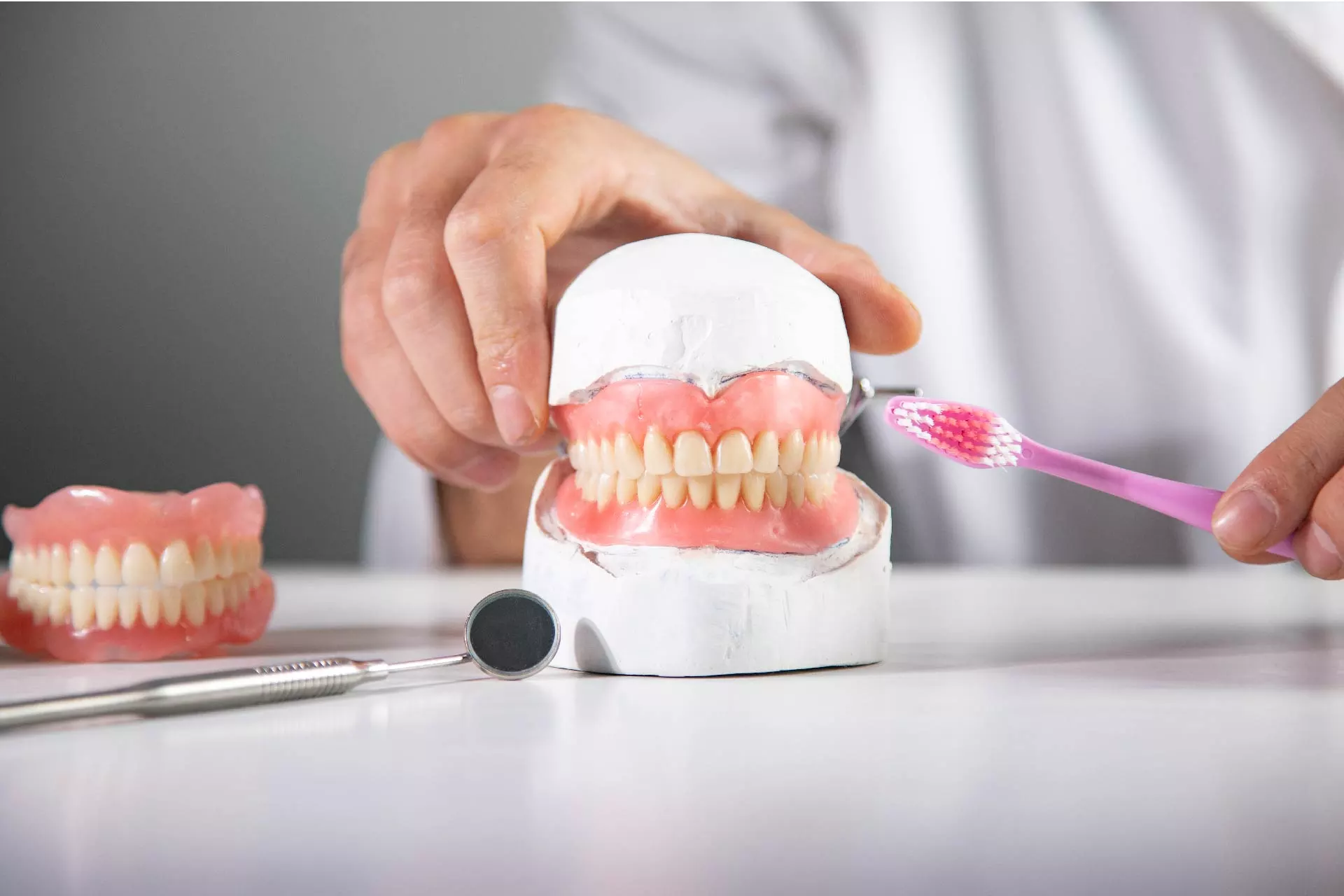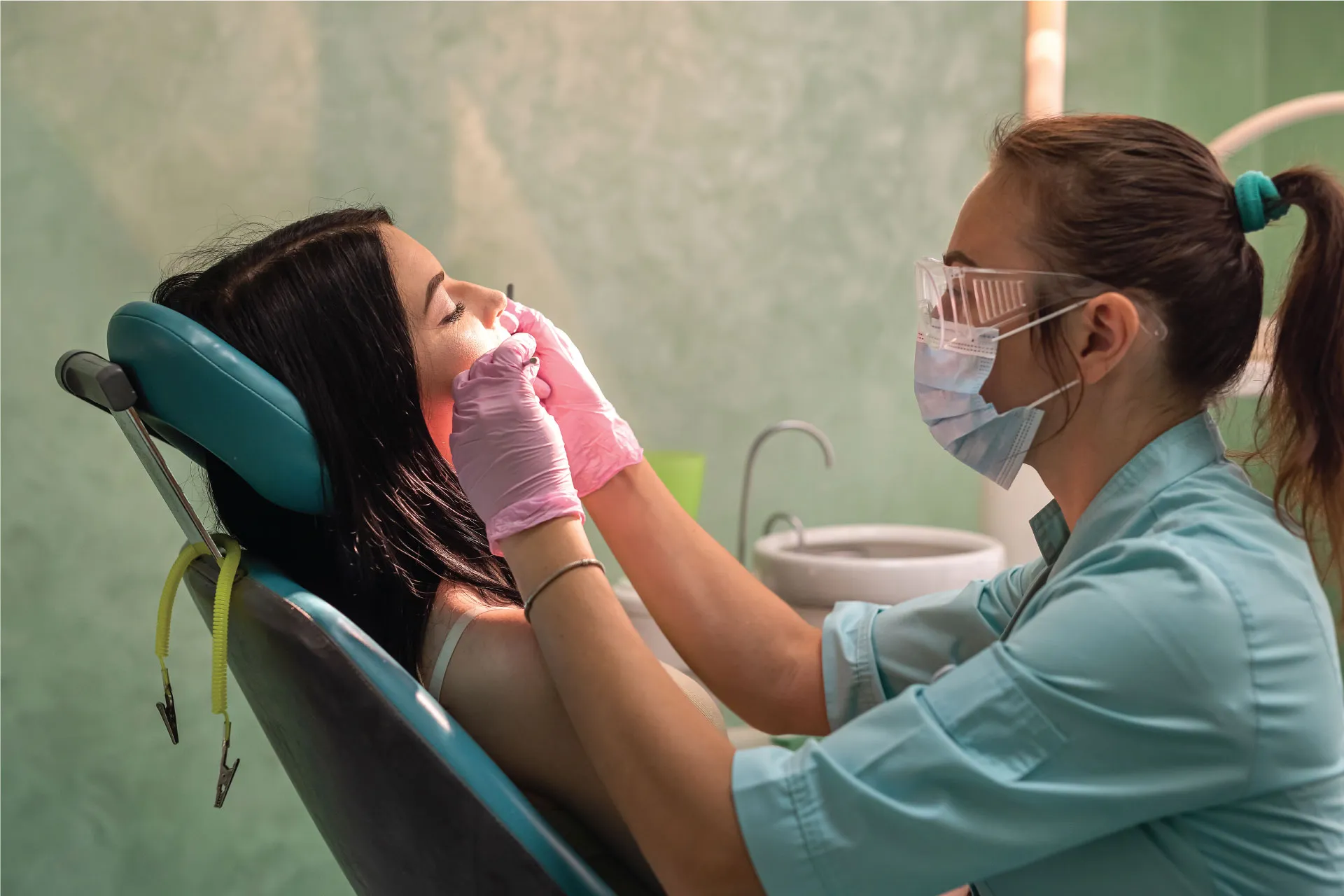Dentist | 8 min read
Oral Thrush: Causes, Symptoms, Prevention and Home Remedies
Medically reviewed by
Table of Content
Synopsis
Oral thrush is a fungal infection that is treatable with antifungal medication. Many symptoms might show its presence. However, the infection is preventable with a few simple measures. It is important to seek medical advice to determine if it is oral thrush or any other health problem.
Key Takeaways
- Oral thrush is caused due to the fungus Candida Albicans
- Antifungal medication in the forms of tablets, liquid, or mouthwash can help treat it
- Maintaining oral hygiene, a balanced diet, and avoiding smoking are some ways of preventing oral thrush
Oral Candidiasis or oral thrush is a fungal infection that occurs in the mouth and throat. It is caused by the fungus called Candida albicans. Although this fungus is usually already present in the mouth, it does not cause a problem. Instead, when its balance is disrupted, it can lead to oral thrush.
This infection usually occurs in infants and kids, people with a weakened immune system, those taking certain medications, and aged adults.
In most cases, thrush of this type causes mild problems and can be treated with antifungal medications. However, in the case of individuals with low immunity, the symptoms can be severe and harder to manage and treat.
Let’s see in detail about oral thrush, its symptoms, causes, treatments, and prevention.
Oral Thrush Symptoms
Oral thrush can present itself with various symptoms ranging from mild to severe. It can affect parts of the mouth, making it difficult to eat. A visit to the dentist or a physician can help you identify the infection. Here are the symptoms that can appear in this infection:
- In adults, white or cream-coloured lesions or spots appear on the tongue, roof of the mouth, inner cheek, gums, back of the throat, or tonsils. The spots may be raised. In babies, a white layer appears on the tongue
- Babies may drool more than the usual amount or not eat
- Babies having this infection can pass it to their mothers through breastfeeding. These mothers can have itchy, sensitive, unusually red, or cracked nipples; flaky or shiny skin on the circular darker part of the nipples; unusual pain while breastfeeding; painful nipples before and after feeding; or stabbing pain in the breast
- Large spots appear in parts of the mouth that turn yellow or grey
- The affected area might be sore or red, making eating and swallowing difficult and painful
- Slight bleeding from the lesions if scraped
- Cracked or red skin on the mouth’s corners
- Sensations like cotton in the mouth
- Loss of taste
- Unpleasant taste
- Swelling or redness in the area under the dentures for those who wear them
- Lesions on the oesophagus (food pipe) if the oral thrush worsens, leading to difficulty or pain in swallowing
- Getting a feeling of food getting stuck in the throat or middle of the chest
- Fever due to the infection
There may also be cases where no clear signs emerge except discomfort in eating or swallowing. While spots or patches on the tongue are a symptom of thrush on the tongue, there may be other causes. Some diseases show the onset or a possibility of cancer in the future. This condition of the tongue can be one of the oral cancer symptoms. You should consult a doctor to identify the disease.
Additional read: Oral cancer symptoms
Oral Thrush Causes
Candida albicans is a fungus that resides in our bodies in the mouth, skin, and digestive tract. There are microorganisms and bacteria in our bodies that keep this fungus in balance.
If this balance is not maintained, the fungus grows, spreads, and leads to thrush in the mouth, tongue, or oral kind. Oral thrush can occur due to various reasons. The following are its causes:
- Poor oral hygiene
- Smoking
- A weak immune system where the body cannot keep the Candida fungus in control leads to infection. Infants and toddlers are prone to this infection as their immune system has not fully developed yet
- Cancer, HIV, and other diseases that compromise the immune system can lead to thrush
- Some antibiotics destroy the bacteria that keep this fungus in check, leading to infection
- Using steroid medication for a long time can increase the risk of oral thrush
- Poor control over diabetes can lead to a high sugar level in the mouth. This increases this fungus leading to infection
- Dentures that don’t fit properly or are not cleaned thoroughly
- Pregnancy, where hormonal changes can cause this infection
- A dry mouth, where there is insufficient saliva, can cause this infection. A healthy amount of saliva prevents infections, which doesn’t happen with a dry mouth
- Malnutrition or deficiencies in the body can lead to thrush. Deficiencies of iron, folic acid, magnesium, vitamin A, zinc, selenium, and necessary fatty acids can lead to the growth of Candida fungus [1]
- Treatments for cancer, including radiotherapy and chemotherapy, compromise the body’s defence mechanism [2]
Oral Thrush Treatments
You should seek thrush treatment if you have symptoms. Even though the symptoms are mild, the infection needs to be treated as it may not go away on its own. Symptoms of the tongue, like black spots on the tongue, may also indicate a fungal infection. However, the exact diagnosis will determine the appropriate treatment. Therefore, it is wise to consult a doctor for the right treatment.
Oral Thrush Treatment Through Medications
The doctor may prescribe antifungal medication for the infection. These can be tablets or lozenges (a flavoured tablet held in the mouth that dissolves slowly [3]). These may also be in the form of liquid that has to be swished in the mouth for a certain amount of time and then swallowed.
The medications include nystatin (antifungal mouthwash), clotrimazole (lozenges), fluconazole, and itraconazole in the form of tablets or liquid.
The treatment is based on the cause of the issue and your age. The medication is usually given for 10 to 14 days.
The doctor will examine the infection to determine if this is thrush or some other condition like periodontitis which may present similar symptoms in the gums. It is important to treat the symptoms and the root cause.

Oral Thrush Home Remedies
There are home remedies that you can try if the infection seems mild. However, you should seek medical advice if the problem persists.
Saltwater
Salt has antiseptic properties that help relieve the symptoms of oral thrush. Take ½ teaspoon salt and mix it with 250 ml of warm water. Swish this in your mouth for some time and spit it out. Repeat this twice or thrice a day.
Baking Soda
Baking soda has properties that prevent or slow down the growth of yeast (candida fungus infection is also called yeast infection). Mix ½ teaspoon of baking soda in warm 250 ml water. Swish this solution in your mouth and spit it out. Repeating this twice or thrice can be beneficial.
Apple Cider Vinegar
This vinegar has antifungal properties that can help treat oral thrush. First, mix one teaspoon of raw apple cider vinegar with 250 ml of water. Then, do the same as with the other solutions above.
Coconut Oil
Coconut oil also has antifungal properties and is often used in Ayurveda. Take one tablespoon of coconut and keep it in your mouth for 10 to 15 minutes, swishing it around. Spit it out after this.
Lemon Juice
Lemon juice can help in the treatment. Make a lemon drink with lemon juice and water. Add salt or sugar according to your requirement.
Turmeric
Turmeric has anti-inflammatory properties that can relieve some oral thrush symptoms. Take ½ teaspoon of turmeric and add it to milk or water. Heat it till it is warm. Swish it in your mouth before drinking it.
Garlic
Garlic has allicin that gives it antibiotic, antifungal, and antiviral properties. Chew one clove of raw garlic once or twice a day to fight this fungal infection.
Additional read: Foods that should be part of a diet for diabetics
Oral Thrush Prevention
While it is possible for anyone to get a thrush infection, it is also possible to prevent it by taking some steps in your daily life. Here are some things you can do to prevent this infection:
- Oral hygiene- Maintain good oral hygiene by brushing and flossing daily. Clean your tongue using a brush or a tongue scraper
- Avoid or limit the use of mouthwash- Some mouthwashes can disturb the balance of bacteria and other microorganisms in your mouth necessary to prevent infections. Consult a dentist to ensure you use the right one
- Hydrate- Drink sufficient water and stay hydrated
- Keep a check on diabetes- If you have diabetes, try to control your blood sugar levels through diet and prescribed medication. This can prevent the growth and spread of candida fungus
- Limit sugary and yeast-rich food- Foods with high sugar or yeast can encourage the growth of candida. Limiting such food can help prevent this
- Avoid smoking- Try not to smoke or at least try to curb it
- Avoid alcohol- Limit alcoholic drinks or avoid them to prevent such infections
- Regular dental appointments- Visit your dentist regularly to maintain good oral health and catch a problem like oral thrush before it gets out of hand
- Clean your dentures- If you wear dentures, ensure they are clean. Clean them regularly to avoid infections
- Avoid spicy food- Avoid food that is salty, spicy, or high in acidic content
- Keep your inhalers clean- If you use them for asthma or other pulmonary (lung) diseases, clean them to ensure they don’t have any germs
- Take medications for existing illnesses- If you have any illnesses that require treatment, take the medicines as prescribed by your doctor to maintain good health
Oral thrush can be mild to severe, depending on the affected person. In many cases, it is easily treatable with medications. It is also preventable if you follow the above suggestions. If you think you have this infection’s symptoms, you can quickly get an online doctor consultation on Bajaj Finserv Health.
References
- https://www.ncbi.nlm.nih.gov/pmc/articles/PMC4681845/
- https://www.ncbi.nlm.nih.gov/pmc/articles/PMC4681845/
- https://www.merriam-webster.com/dictionary/lozenge
Disclaimer
Please note that this article is solely meant for informational purposes and Bajaj Finserv Health Limited (“BFHL”) does not shoulder any responsibility of the views/advice/information expressed/given by the writer/reviewer/originator. This article should not be considered as a substitute for any medical advice, diagnosis or treatment. Always consult with your trusted physician/qualified healthcare professional to evaluate your medical condition. The above article has been reviewed by a qualified doctor and BFHL is not responsible for any damages for any information or services provided by any third party.





